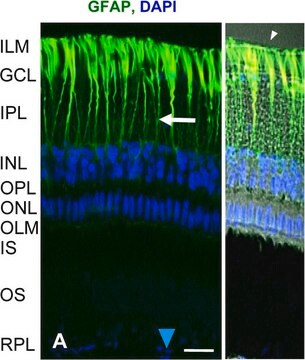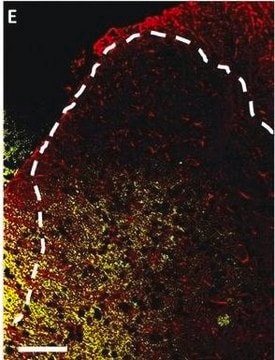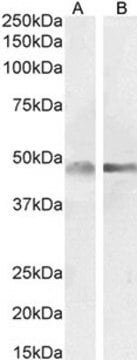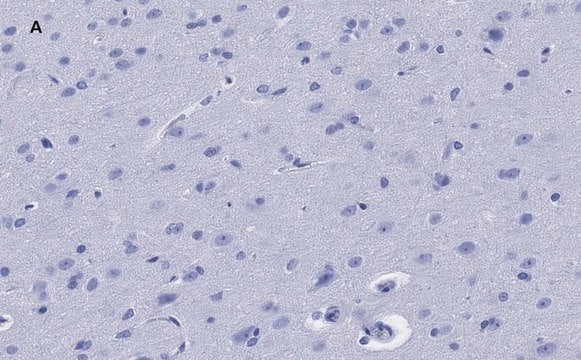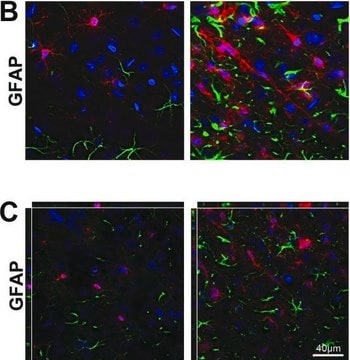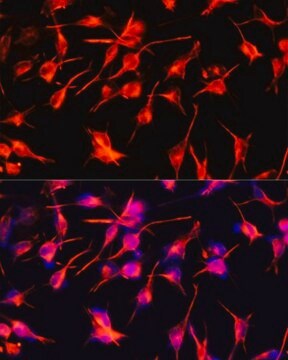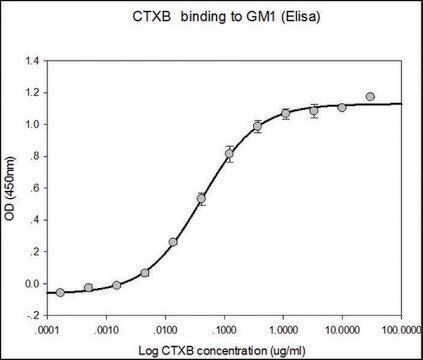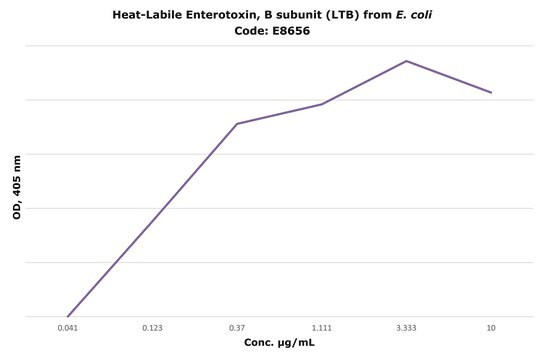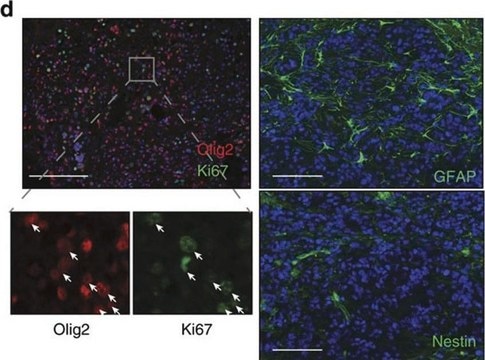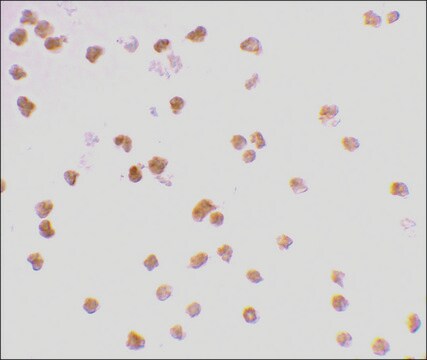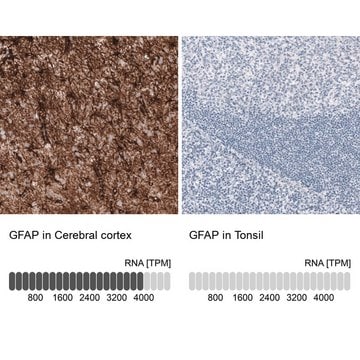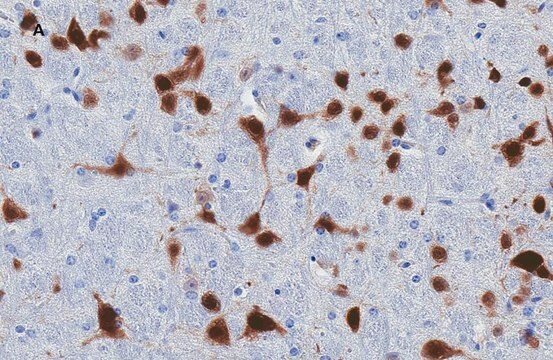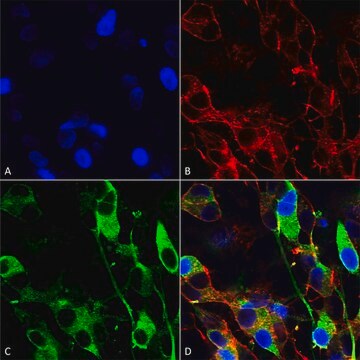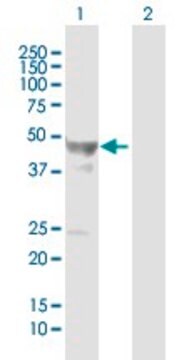G4546
Anti-Glial Fibrillary Acidic Protein antibody produced in rabbit
~1 mg/mL, affinity isolated antibody, buffered aqueous solution
Synonyme(s) :
GFAP Antibody for Flow Cytometry - Anti-Glial Fibrillary Acidic Protein antibody produced in rabbit, Gfap Antibody Flow Cytometry, Anti-FLJ45472, Anti-GFAP, Anti-Intermediate filament protein
About This Item
Produits recommandés
Source biologique
rabbit
Niveau de qualité
Conjugué
unconjugated
Forme d'anticorps
affinity isolated antibody
Type de produit anticorps
primary antibodies
Clone
polyclonal
Forme
buffered aqueous solution
Poids mol.
antigen ~50 kDa
Espèces réactives
human, rat, mouse
Concentration
~1 mg/mL
Technique(s)
flow cytometry: 1:200-1:500
immunohistochemistry: 1:100-1:200
western blot: 1:500-1:1,000
Numéro d'accès UniProt
Conditions d'expédition
dry ice
Température de stockage
−20°C
Modification post-traductionnelle de la cible
unmodified
Informations sur le gène
human ... GFAP(2670)
mouse ... Gfap(14580)
rat ... Gfap(24387)
Description générale
Spécificité
Immunogène
Application
Forme physique
Clause de non-responsabilité
Vous ne trouvez pas le bon produit ?
Essayez notre Outil de sélection de produits.
Anticorps
Produit(s) apparenté(s)
Code de la classe de stockage
12 - Non Combustible Liquids
Classe de danger pour l'eau (WGK)
nwg
Point d'éclair (°F)
Not applicable
Point d'éclair (°C)
Not applicable
Équipement de protection individuelle
Eyeshields, Gloves, multi-purpose combination respirator cartridge (US)
Certificats d'analyse (COA)
Recherchez un Certificats d'analyse (COA) en saisissant le numéro de lot du produit. Les numéros de lot figurent sur l'étiquette du produit après les mots "Lot" ou "Batch".
Déjà en possession de ce produit ?
Retrouvez la documentation relative aux produits que vous avez récemment achetés dans la Bibliothèque de documents.
Les clients ont également consulté
Notre équipe de scientifiques dispose d'une expérience dans tous les secteurs de la recherche, notamment en sciences de la vie, science des matériaux, synthèse chimique, chromatographie, analyse et dans de nombreux autres domaines..
Contacter notre Service technique
